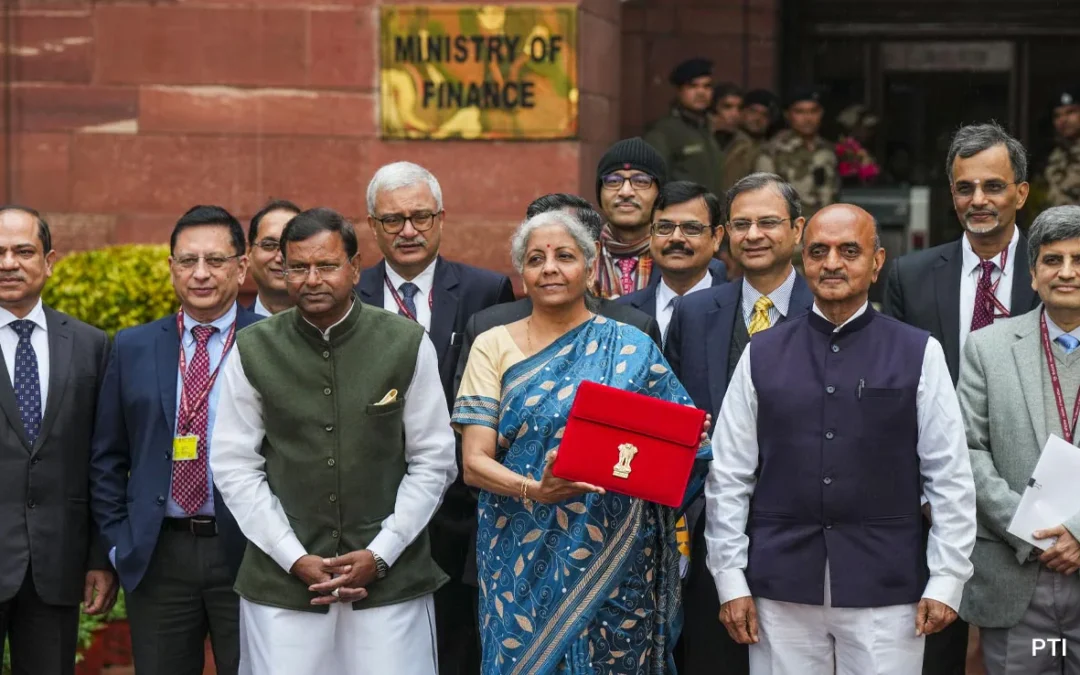High-powered committee to look into the challenges arising from fast population growth and demographic changes
Top priority is being given to empower four segments that include the poor, women, youth and farmers for the support of the government
Ayushman Bharat cover extended to all ASHA, and Anganwadi workers
40 million farmers covered under the PM Fasal Bima Yojana
New Delhi:
Finance Minister Nirmala Sitharaman decided to stick to the path of fiscal consolidation path as she pushed for economic growth and inclusive development in the interim Budget 2024-25 presented in Parliament on Thursday.
She announced that Ayushman Bharat cover extended to all ASHA, and Anganwadi workers.
The govt has assisted 250 million people to get freedom from multidimensional poverty in the last decade. Scheme for tribal, Divyang, and transgenders who were earlier out of the realm of development shows the resolve of government to leave no one behind.
“Our government is working towards development which is all round, all inclusive and all pervasive. It covers all castes and people at all levels. We are working towards making India a Viksit Bharat by 2047, Sitharaman said.
The government will form a high-powered committee to look into the challenges arising from fast population growth and demographic changes, Sitharaman said .
She said the committee will be mandated to make recommendations for addressing these challenges comprehensively in relation to the goal of ‘Viksit Bharat’.
Sitharaman said various schemes for maternal and child healthcare will be brought under one comprehensive programme for synergy in implementation.
Crop insurance has been given to 40 million farmers under the PM Fasal Bima Yojana. This assists the annadata in producing food for the country and the world. 1,361 mandis integrated with 3 trillion trading volume,” she said.
The Finance Minister has reduced the fiscal deficit target to 5.1 per cent of GDP for 2024-25 while increasing the government’s capital expenditure on big infrastructure projects to push the economic growth rate. This has been made possible due to the robust increase in tax collections in a fast-growing economy.
The allocation for big infrastructure projects to be taken up in 2024-25 has been raised to Rs 11.1 lakh crore which is an 11.1 per cent increase over the previous year.
The gross market borrowing of the government has been fixed at Rs 14.13 lakh crore while the net market borrowing is proposed at RS 1.75 lakh crore which is lower than the corresponding figure for 2023-24.
“Lower market borrowings by the government will leave more funds for private sector corporates to get loans for investment which will accelerate the country’s economic growth further,” the Finance Minister said in her Interim Budget speech.
The Interim Budget has also created a corpus of Rs 1 lakh crore for a 50-year interest-free loan for the farm sector.
The Finance Minister said that she was not making any changes in the direct or indirect tax rates in the interim budget.
Sitharaman said that the Indian economy has witnessed a transformational change and fruits have development have started reaching people at a mass scale.
“The Modi government’s polcy of inclusive development and growth is a deliberate departure from the past governments. Housing water electricity, bank accounts cooking gas have been provided for all. Worries of food have been eliminated with free food for 83 crore people and real incomes have increased,” she said.
She said the government was committed to social justice with all-round development that would improve the capability of the people and empower them.
“Social justice is a necessary model and the government’s saturation approach reflects secularism in action that prevents corruption and nepotism. Opportunity for all. Systemic inequality is being addressed for social transformation,” she said.
Top priority is being given to empower four segments that include the poor, women, youth and farmers for the support of the government, she added.
“Our government is ready to assist states in faster development of aspirational districts and blocks,” she said.
Tourism has tremendous opportunities and the government will take up development of iconic tourist centres to attract foreign tourists.
Sitharaman said in the last 10 years, the number of airports has doubled to 149, adding that Indian carriers have pro-actively placed orders for over 1,000 new aircraft. India is one of the fastest growing civil aviation markets in the world and domestic air passenger traffic is on the rise.
India received FDI inflow of USD 596 billion since 2014, double the inflow between 2004 and 2014.

